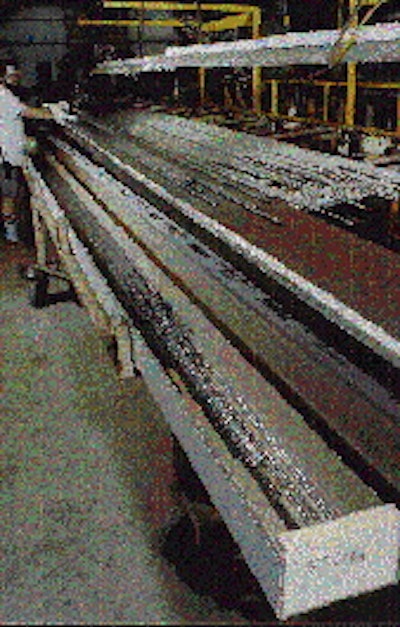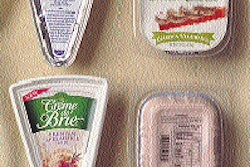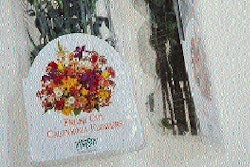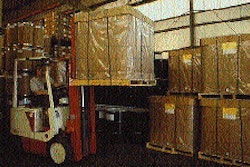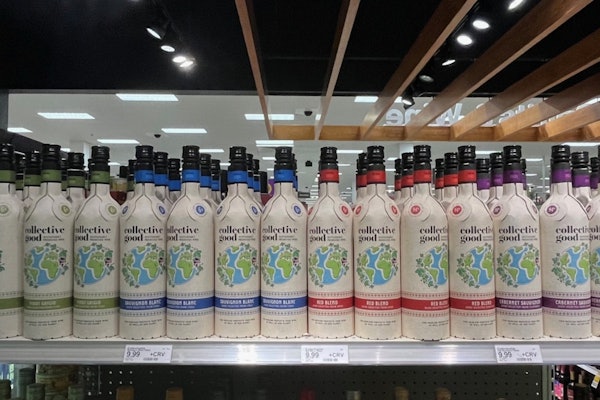It was like receiving a gold watch in a paper bag: No one doubted the quality of the product, but the packaging left something to be desired. So Plymouth Tube Co. USA, a Salisbury, MD-based producer of specialty tubing, set out to make a change. Plymouth ships high-quality stainless steel tubing in lengths to 25' for mechanical, pressure and aircraft hydraulic applications. Prior to packaging, each length of tube is straightened, tested, cut, deburred, cleaned, re-measured and inspected. "When I came here in 1989, I found a plant that was producing quality products and putting them in 'questionable' shipping containers," says Tom Maternowski, general manager at Plymouth. "Cardboard tubes, corrugated boxes and wood crates-we tried them all." Today, the company has switched to Reddi-Crate(TM) boxes from Reddi-Pac (Bridgeport, PA). Made from layers of laminated paperboard formed into U-shaped segments, the boxes are sealed with wood or paper end plugs. An exterior white clay coating on the containers provides an excellent surface for one-color printing. This quickly conveys a strong, quality image. Problems with wood In the past, Plymouth loaded the tubes, which have diameters up to 1", in wooden boxes. Wooden crates did not, however, project a quality image. Nor did they facilitate shipping or provide complete protection. The boxes would bend and warp, making them difficult to store, fill and stack, says Maternowski. In addition, they practically encouraged abuse. "Trucking companies were accustomed to handling our wood crates as though nothing would damage them," says Wayne Pryor, administrative manager for Plymouth Tube. "They would lift, drag and push them, lift one end and slide the other. Consequently, many wood crates arrived at our customers' facilities cracked or broken and with [end plugs] missing." In looking for an alternative, Maternowski was steered toward Reddi-Crate packaging by an executive in the construction business. The boxes are made from recycled paperboard and come in lengths from 2" up to 48'. Each box is formed by pairing two of the U-shaped pieces, one loaded with product, and sealing the ends. In conducting a test shipment of the new container, Plymouth opted for a sample order of 5" x 8" x 25' Reddi-Crate segments with a .240" wall. Although the .240" proved effective for shipping shorter lengths, the company decided to use a sturdier .300" wall for shipping longer lengths up to 25'. To prevent trucking companies from dragging the new boxes like they did with the wood crates, Plymouth staples grooved wooden cleats to the box base. When the container is filled, the top is placed on and a steel strap is put through the grooved cleat and secured around the box. The strapping reinforces both the crate and the cleat. It also stiffens the flex in longer crates. After informing the trucking lines that Plymouth was upgrading the quality of its packaging, Pryor also had the word "Fragile" imprinted on all of the crates. Besides reducing damage incurred during shipping, the use of the Reddi-Crate has cut freight and packaging costs for Plymouth. The paperboard containers weigh less than wood and cost about 60% less than wooden crates, Maternowski says. They are also easier to store and faster to assemble. In addition, Plymouth was able to eliminate the cost and inconvenience of a film liner used previously with the wooden crates. "At first, a few of our customers were skeptical about our new system," Pryor admits. "But once they saw the appearance and experienced the performance of our containers, our customers agreed that the Reddi-Crate has improved Plymouth Tube's packaging." The paperboard containers are also easier to dispose of than crates. As Pryor notes, "there are so many other benefits that price isn't the only consideration. We like them and have started using the larger 8x12-inch size. Overall, these containers reflect the quality image of our product."
